The Transform Nutrition Project aims to substantially reverse child malnutrition in Nampula Province
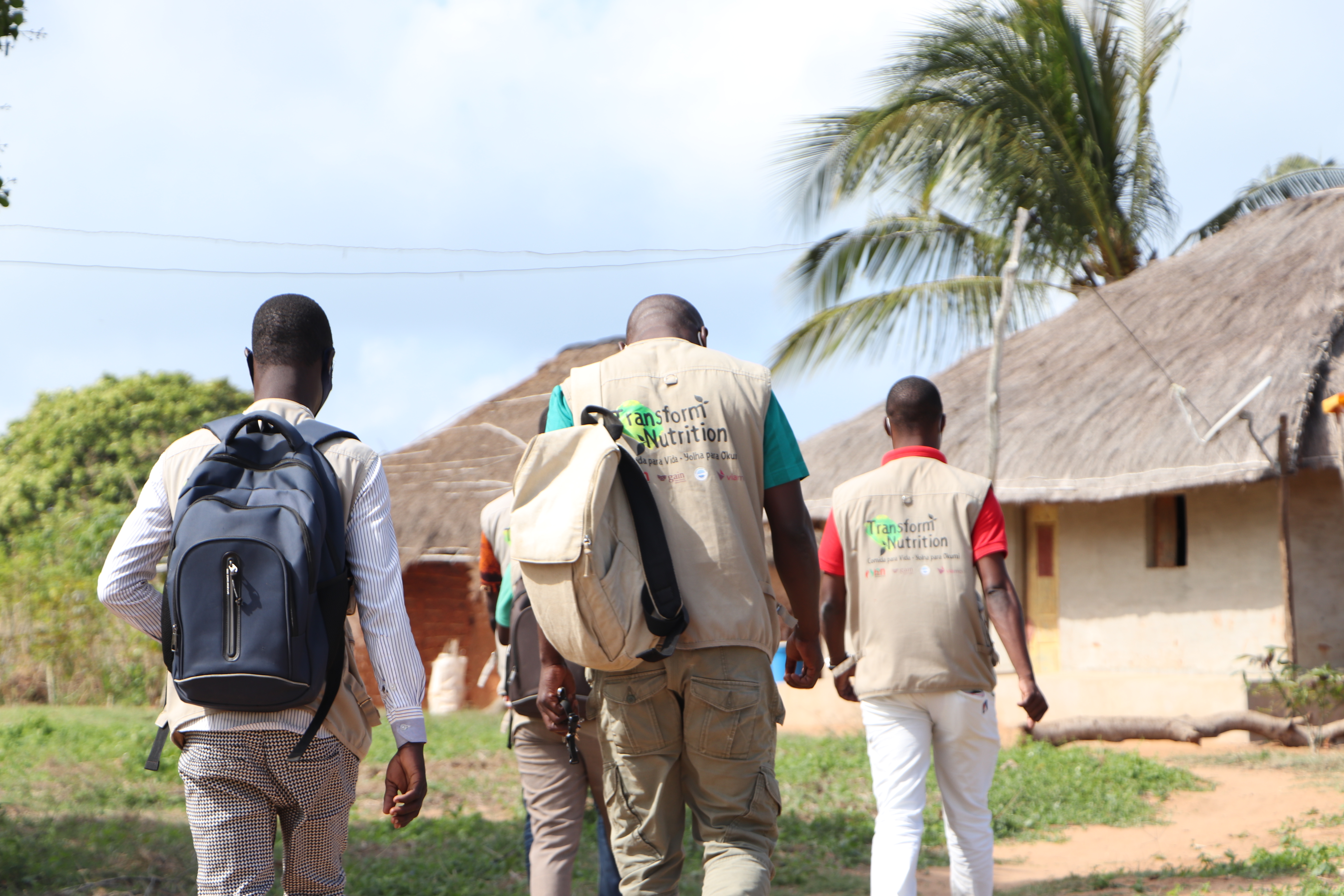
The TN program works with people at the community level to organize and train participants to influence positive behavior changes and take charge of their own health and that of their children. Key elements of the program include:
- Mobilizing and training participants to ensure optimal behaviors to improve their nutritional status.
- Promotion of home gardens to improve the dietary diversity of families.
- Increasing their access to quality services and products for nutrition, sanitation, and hygiene.
At its core, TN works to strengthen the government's capacity at local levels to plan and manage nutrition programming. The project also works on the national provincial and district level while reinforcing the capacity of the community health and management committees, which are also critical to ensure that activities can continue, long-term.
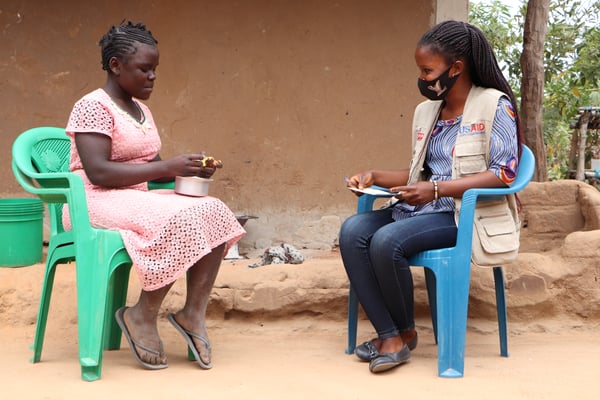
Nampula Province has the highest stunting rate for children under the age of five. Poor nutrition is one of the chief causes of stunted growth. The 55 percent stunting rate is 12 percent higher than the country's national average.
Quinho Zaona is the District Head of Nutrition at the Mossuril Health Center. Zaona states, "We want to reverse the malnutrition scenario in the district of Mossuril." Working in partnership with ADPP Mozambique, the once far-off vision of reversal is slowly becoming a reality. One of TN's critical strategies is forming nutrition groups. These groups are comprised of pregnant and breastfeeding mothers as well as influential (male and female) community leaders. In respect to previous years, each group observes the discernible changes that occur within the course of the eight-month program.
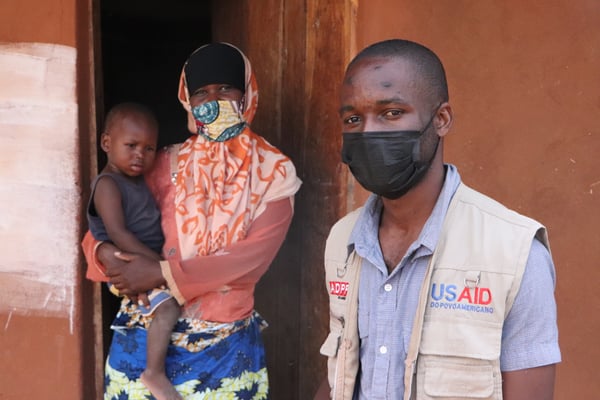
Sadia Colataine is the mother of three children and part of the nutrition group. The group consists of 10 other women in the community of Cabaceira Grande, in the district of Mossuril. Sadia came to the group because of the efforts of a mentor from the TN project. In the nutrition group, Sadia is taught to exclusively breastfeed her baby boy, Abdul—something she did not do with her first two children.
The young mother explains, "I have been part of the nutrition group for over a year. In the sessions, I learned that until six months old we should only breastfeed, which is the milk that contains colostrum." She explains, "In addition to serving as food, it also protects the child from illnesses. We should only give water or other food after six months."
Sadia has noticed the difference in the health of her baby boy in comparison to her experiences with her other children. She says, "My first two children did not grow as healthy as Abdul, even before they were six months old, whenever they cried, I tried to give water and provide some home remedies to relieve the pain."
The partnership between our Health Unit and partner, ADPP, through the Transform Nutrition project, is already having a positive effect
Overall, Mossuril Health Center's district head is pleased with the reduction of malnutrition cases in children under two years old. The center is bustling with the parents of young children seeking health services daily. Zoana states, "The partnership between our Health Unit and partner, ADPP, through the Transform Nutrition project, is already having a positive effect on the communities surrounding our Health Unit. It is already possible to see a good number of well-nourished children, thanks to the community services we offer in the areas of exclusive breastfeeding."
Rosa Manuel, a Maternal and Child Health Nurse (MC) at the Mossuril Health Center is also relieved at the district's dramatic decrease in cases of malnutrition in children under the age of two. She acknowledges it was not an easy feat, saying, "It was a work that took some time and involved several actors, but today the community is aware of the importance of exclusive breastfeeding for the babies during the first six months."
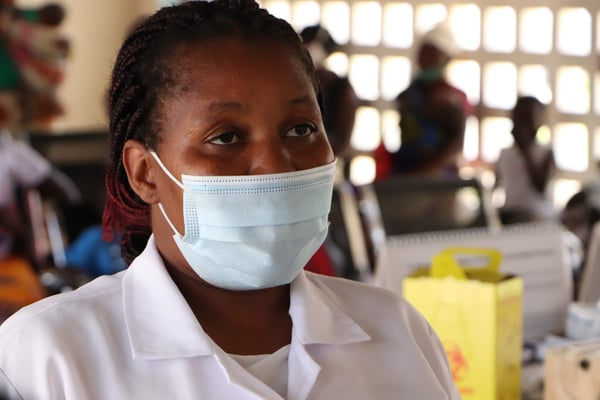
Manuel also acknowledged that societal and cultural issues surrounding breastfeeding had to be addressed for change to occur. "With these community actions in progress, we have come to know that the causes of malnutrition are not motivated only by the scarcity of useful products for good nutrition, but in their diversification and, in part, cultural factors have constituted the biggest obstacle to overcome this problem," Manuel states.
Although teaching the correct way to breastfeed is an important part of the TN project, it covers much more than that. Last year, 2,444 participants (pregnant and lactating women, caregivers of children under two, and influencer leaders) completed at least 75% of the nutrition groups' sessions. Girls Inspire Clubs are TN's key strategy to promote behavior change in adolescent girls for optimal nutrition. The Girls Inspire Clubs consist of 25 girls (in school and out of school) who meet weekly at school or in the community to learn how to take action practicing and adopting new behaviors on nutrition, reproductive sexual reproductive health, sanitation, and hygiene.
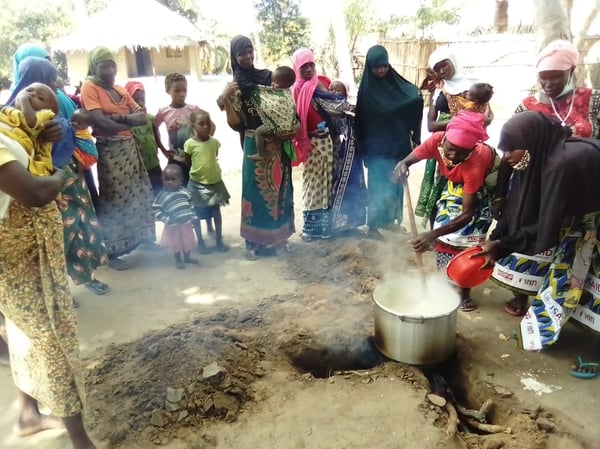
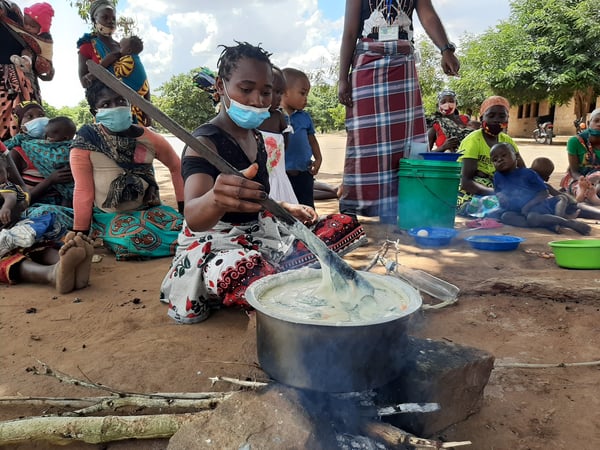
So far, the mentors have collaborated with community leaders and parents to recruit 1,550 girls and they established 775 girls clubs, equivalent to 20% above ADPP's target. The compelling reason behind the surplus was the girls' motivation and initiative to establish more clubs on their own. Notwithstanding, many more girls in the community could benefit from being part of the girls inspire clubs.
Leonardo Roroge is a mentor in the Transform Nutrition project. The 27-year old has been working with the project in Rapale Sede, Nampula province for over a year. Leonardo states, "Our purpose is to work with the Girls Inspire club leaders and capacitate them so they are able to lead the club's weekly sessions. He adds, "We are satisfied with the transformations that the project is bringing in the lives of the girls and their families, from the interaction we have had in the day-to-day sessions. The girls serve as true catalyst vehicles to influence their parents to change attitudes. They play an important role in the family, especially when it comes to adopting new models of life."
Thirteen-year-old girls' club member, Angelina Maria, was able to convince her father to start pigeon breeding again at his house. She expressed how it would improve his nutritional status. Angelina explains, "My father had already stopped breeding pigeons for over three years, but the dovecote structure was still in our backyard and intact. Because I learned at the girls' club the need to access varied food, I convinced my father to continue raising pigeons. With our mentors, we learn about smart backyards made up of vegetable gardens, canopies, and animal husbandry."
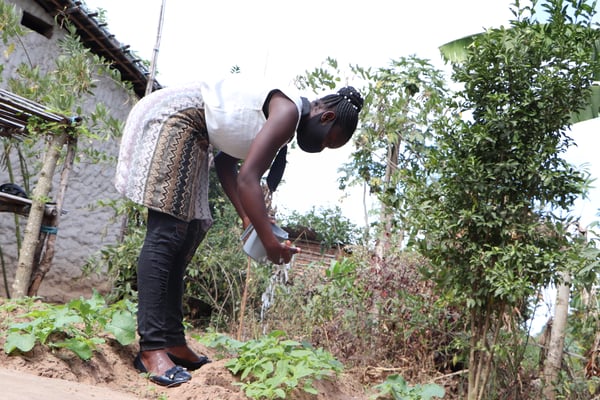
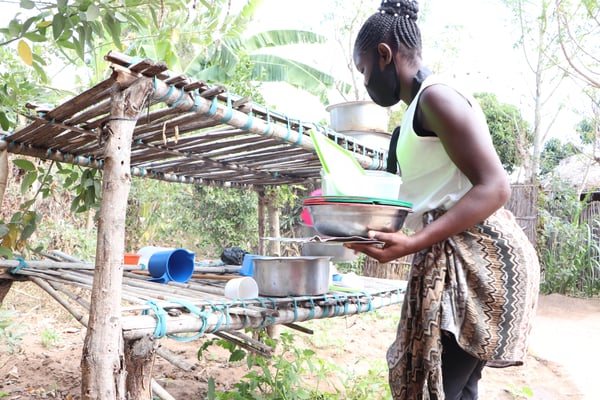
Smart backyards not only help vary dietary nutrition, but they also promote a lifestyle of safe and sanitary habits among residents. Iahaya Ossufo is a resident of the urban neighborhood in Angoche, and he teaches his neighborhood members about hygiene and environmental sanitation to end the diseases that stem from poor waste conservation in swampy areas and open defecation. These lessons are vital because open defecation has a big influence on people's health in Nampula Province. Even if they have diversified diets, without good sanitation and hygiene, their efforts diminish through diseases such as diarrhea.
A model household demonstrates the elements and layout of smart backyards. Iahaya is encouraged by the new changes, saying, "We are no longer vulnerable to diarrheal diseases!" Adding, "˜We are seeing major changes in almost every backyard, we already have latrines, vegetable gardens, tip-taps, and a landfill in order to properly collect garbage and that is why we are minimizing disease situations."
For more information about the Transform Nutrition project, visit USAID.org.
*According to the World Health Organization (WHO), exclusive breastfeeding means "the infant receives only breast milk. There are no other liquids or solids administered "“ not even water "“ with the exception of oral rehydration solution, or drops/syrups of vitamins, minerals or medicines."
